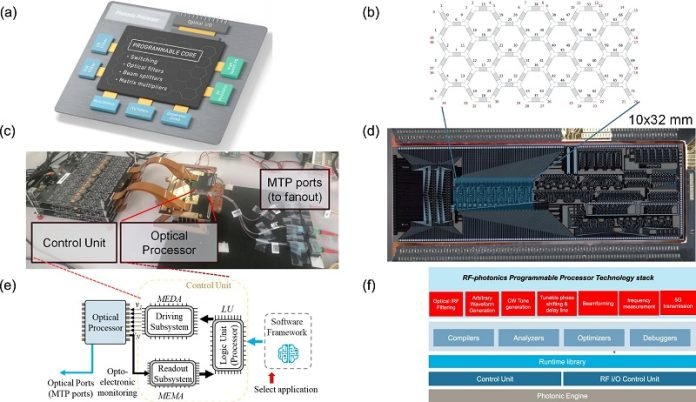
Researchers from the Universitat Politècnica de València and the tech company iPRONICS have created a groundbreaking photonic chip that promises to revolutionize telecommunications, data centers, and various high-tech applications.
This innovative chip, hailed as the first universal, programmable, and multifunctional photonic chip in the world, was developed as part of the European UMWP-Chip project led by José Capmany and featured in Nature Communications.
This new chip stands out because it can be programmed on demand to perform a wide range of functions needed in modern technology systems.
It’s designed to seamlessly integrate the wireless and photonic parts of communication networks, effectively preventing the bottlenecks that can reduce capacity and slow down data transmission.
This makes it an ideal solution for high-demand applications like 5G communications, quantum computing, artificial intelligence, and even autonomous driving.
Professor José Capmany from the Universitat Politècnica de València explains that the chip is capable of handling the twelve essential functions required by today’s and future technology systems.
Its flexibility and efficiency could significantly enhance how data is processed and managed across different platforms.
Moreover, it is compact enough to fit into the modern infrastructure, where reducing size without sacrificing performance is critical—especially in systems like 5G networks where smaller antennas and circuits are necessary.
This versatile chip has already been incorporated into iPRONICS’s product, the Smartlight, and has undergone successful testing with Vodafone.
The ability to program and adapt the chip on the fly enhances the efficiency of handling data flows, making it particularly useful in data centers and networks designed for artificial intelligence.
The successful development and integration of this chip mark a significant milestone in photonic technology.
Daniel Pérez-López, co-founder and CTO of iPRONICS, emphasizes the importance of this breakthrough, noting that it addresses the increasing challenges in managing data efficiently in complex systems.
Looking forward, the team aims to scale up the production of this chip to meet the growing demands of the market, potentially transforming how data is processed and transmitted in numerous technological sectors.
This development not only paves the way for more advanced and reliable communications networks but also opens up new possibilities for a range of futuristic applications.



